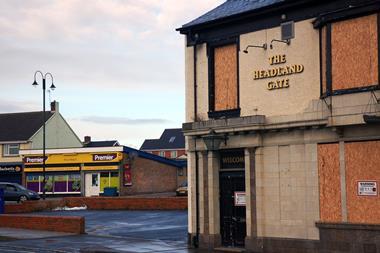Efforts by multiple chains to develop new convenience store sites are being thwarted by mounting community interest group activity, and new rules which allow properties to be listed as Assets of Community Value (ACV).
Many had been “left frustrated” by the planning process and claims by local community interest groups that buildings, especially pubs, were ACVs, a survey of 500 major grocers and convenience store operators conducted for Christie + Co revealed.
Introduced at the end of last year, the ACV scheme enables community groups to ask councils for certain assets to be listed as being of community value. Groups are then granted six months in which to put together a bid to purchase the asset, should it come up for sale.
According to the survey, 70% of respondents cited community concerns as a major barrier.
The Association of Convenience Stores (ACS) said it was vital that the correct balance was found. “We have to strike a balance between local people being able to decide what is right for their area, and ensuring retailers who want to bring new investment and jobs to an area have the opportunity to do so,” said ACS public affairs director Shane Brennan.
A new report by the Plunkett Foundation has revealed that shops which were bought and run by their local communities were continuing to flourish.
Average gross sales in community-owned shops are up 13% and the sector’s net profit increased by 22.8% in 2012, the Community-Owned Village Shops 2013 report shows.
There are now more than 309 community-owned stores trading in the UK, and not one closed down in 2012.
“We’re seeing the community shop sector continue to grow, by 25 shops in 2012 and by 141 over the past five years,” said Plunkett Foundation head of frontline James Alcock.

















No comments yet